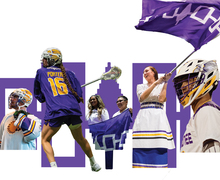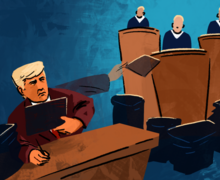City’s youth advisory council can bridge the youth engagement gap
/ The Daily Orange
Getting young voters to the polls is something politicians have struggled with for years. And beyond voting, simply getting teens and young adults to participate in politics remains an important, if elusive, cause.
Syracuse Common Councilor Jean Kessner is trying to help her city combat this problem: Kessner recently announced a proposal to establish a Youth Advisory Council made of Syracuse area high school students. The 11 members of the advisory board would report to the Common Council on issues affecting the younger generations of Syracuse.
Without a doubt, Kessner’s idea will be beneficial to the Syracuse community. Not only will intelligent and articulate high school students be able to share their distinct perspectives on issues — such as education and poverty — with city officials, but their active role in government now will encourage them to stay engaged when they become eligible voters in the future.
The statistics on voting rates for the millennials, who are between the ages of 18 to 35 years old as of 2016, speak to the need for political outreach within the upcoming generation.
In the 2008 and 2012 presidential elections, respectively, 50 percent and 46 percent of millennial voters participated in the election. Compare that to 69 percent of baby boomers (those 52-70 years old as of 2016), according to the Pew Research Center. And in the 2014 midterm election, according to data gathered by the Center for Information and Research on Civic Learning and Engagement, a measly 19.9 percent of registered millennials voted.
Next to antiquated campaign tactics like TV ads and direct-mail leaflets and a lack of competitive elections due to gerrymandering, voting regulations play a big part in why our generation fails to make it to the booth. Voter ID laws across the country have restricted what’s acceptable in terms of identification, and decreased early voting and same-day registration don’t work in millennials’ favor either.
All of these reasons come back to one idea: young people feel less connected to their political representatives than ever before. By introducing them to the policymaking process and giving them a way to get involved, the city of Syracuse is showing young people that their voice can be heard.
With Syracuse youth in particular, Kessner cites the protests in Ferguson, Missouri following the police shooting of 18-year-old Michael Brown back in 2014 and the Black Lives Matter movement as her reasoning for championing this program.
“It was this whole craziness of ‘lives mattering,’ which obviously they do,” Kessner said. “And I thought what about children? They’ve got the longest lifespans in front of them and nobody is saying that they matter.”
Kessner also references the shooting of 15-year-old Zavion Escobar in 2015 as a source of motivation for reaching out to teenagers in the city.
“The troubling thing about this (is) that this happened on our watch. Somebody got to the age of 15, in the city of Syracuse, and grew no older,” Kessner said.
In addition to its gang violence and other crime, Syracuse has some of the highest poverty levels in the country. Children and teenagers are more likely than any other age group to be impoverished, so connecting with kids early on and including them in the policy process is the most straightforward method of showing them the stake they have in the city of Syracuse.
Looking ahead, Kessner is optimistic about the impact the youth council can have. “I have to tell you, from when they put that story in the (Syracuse Post-Standard) paper, how many people have contacted me,” she said. “And the best part is that there’s so many teachers, that they’re so excited. ‘Could you just come and talk to our kids?’”
By bringing together multiple groups — the teachers, the students and the politicians — the council is more likely to succeed due to the shared motivation of all involved.
Engaging with your government is an important step in advancing your community’s and your own well-being. It’s for this reason that hearing from the most vulnerable of Syracuse’s residents can give the city government valuable information to improve safety, education and the prospects of thousands of children. Without those voices, Syracuse’s future hangs in the balance.
Cole Jermyn is a sophomore environmental resource engineering major and economics minor at SUNY-ESF. He can be reached at cdjermyn@syr.edu and followed on Twitter @Cjermyn8.
Published on September 26, 2016 at 12:51 am





